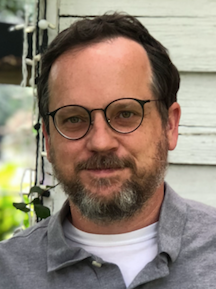Fort Bragg should be named after Farmville native
Published 6:00 am Wednesday, June 24, 2020
|
Getting your Trinity Audio player ready...
|
Recently, the U.S. military has been debating changing the names of forts that were named in honor of Confederate military leaders.
Without getting into the politics of that debate, were the U.S. army to change the name of its base at Fort Bragg, North Carolina, I have a suggestion, name it after Farmville area native General Samuel Vaughan Wilson.
General Wilson taught special forces tactics and counter-insurgency at Fort Bragg in the 1960s. He was also a veteran of World War II, intelligence officer during the Cold War, commander in Vietnam, and the president of Hampden-Sydney College from 1992-2000. I am the archivist organizing Wilson’s papers, which total 270 boxes of letters, photographs, and military papers. It’s a great collection, but then again, Wilson was an accomplished and beloved figure.
Wilson was born in Rice, Virginia, in 1923. He served in the U.S. military for 37 years. In 1940, after hearing an inspiring speech by Winston Churchill, he walked miles to a National Guard recruiting station to sign up. His combat experience in World War II came in Merrill’s Marauders. This elite unit served behind the Japanese lines in Burma, where more than 95% of the men became casualties. In 1944, Wilson, wracked by wounds and jungle illnesses, barely made it home alive, but not before leading a series of scouting missions that proved vital to the Marauders’ mission.
After the war, Wilson became an intelligence officer— in essence, a spy. He had a varied career that took him from West Berlin to Vietnam to Moscow. At Fort Bragg, Wilson came up with the term “counter-insurgency” (known officially as the COIN doctrine), which would prove central to U.S. strategy in Vietnam as well as Afghanistan and Iraq. Wilson believed that when fighting a guerrilla or insurgent war, you had to win the “hearts and minds” of the civilian population were the military to succeed. When approaching the subject of war, Wilson took as intelligent, measured, and humane an approach as you are likely to find among military leaders.
After his service in Vietnam, Wilson continued to rise in the ranks, becoming a lieutenant general in the 1970s. He headed the Defense Intelligence Agency in 1976 before his retirement the next year. But Wilson never really retired. In the 1980s, he began teaching on international relations at Hampden-Sydney College. In 1992, he became the college’s president, where he proved to be both a forward-looking leader as well as a preserver of Hampden-Sydney’s long standing traditions.
Wilson died in 2017 at the age of 93. He is fondly remembered by students, faculty, and others around the world. His papers contain letters from everyone from Oliver Stone and Sam Fuller to George H. W. Bush and Richard Nixon. Renaming Fort Bragg after Samuel Wilson would be a wise and honorable choice for this wise and honorable man.
DR. COLIN WOODWARD is a project archivist at Hampden-Sydney College. He can be reached at cwoodward@hsc.edu.



